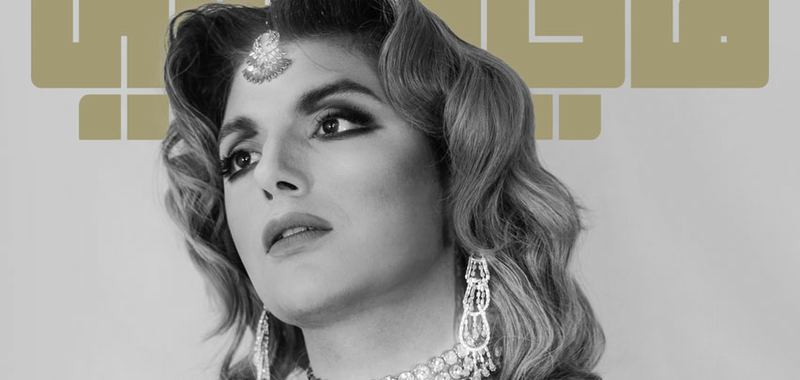In this issue, we attempt to present the character of Sabah / Shahroura (November 10, 1927 - November 26, 2014) with all the patriarchal and masculism values she has encountered in order for her to reach glory and fame on the one hand, and her impact on society as a source of inspiration among sexuality freedom on the other.
In her late years, Sabah has been ridiculed by media personalities, and has been subjected to a mixture of hostility directed against women, apart from discrimination based on age and obscuring her creative achievements and trying to undermine her long artistic history as her life has been minimized into how many times she got married, and the desperate attempts to expose her age which she never been ashamed to talk about. Many tried to subject the sexuality of all women through her, as if a woman’s sexuality has an expiry date. What caught our attention is that during her life, Sabah used the privileges available to men - not women - without compromising with what is commonly known as "femininity," she refused to submit to any stigma that surrounded her and lived the life that suited her. So, we have chosen to portray Sabah (through androgyn) to express the symbolism of her experience in breaking the binary social roles that have inspired us as individuals by hosting the emerging entertainment character: Aphrodite Nicole Smith
In this issue, we are trying to shed light on societal issues through Shahroura's life and experiences, and how the public was dealing with it. Between her role in El Motamarreda movie (The Rebel) as the daughter of the rich classy man who tries to subjugated men using her influence, and the movie Khadaini abi (My Father Deceived Me) in which she played the exact opposite of the previous character; a completely subjugated woman whose greedy father forces her to marry a rich man, to struggle with the conflict between staying with her rich husband or running away with her poor lover.
Sabah lived her life with no shyness at all, men who lived around her have repeatedly tried to deceive her, but she used to survive their attempts.
In this issue, our articles will discuss the effect of the (xenophilia) on the Arabic Art and on Sabah’s life in particular by minimizing it to her blonde hair, the stigma that besets women who marries younger men, and the number of men they marry, in addition to the moments of strength Sabah has lived.
This issue is in partnership between My Kali and جيم – Jeem.me
The cover inspiration by the original 'Drunken love' performance of Sabah in film Al rajal al thani (the second man), 1959, in song A'atshana (Thirsty).
Photographed by Omar Shaheen Modeled by Aphrodite Nicole Smith
Styled by Fadi Zumot
Makeup by Ghadeer Banek
Hair by Hiba at Frank Provost - Amman
Directed by Khalid Abdel-Hadi
Dress and choker by Nafsika Skourti. Head piece by BCBG Max Azaria - Amman
Titles:
شقراء الشاشة: كيف أثرت عقدة الخواجا في الفن العربي و لماذا؟
متصابية: وصمة ذكورية لاحقت أعمار النساء و جنسانيتهن و أجسادهن
التجربة الشحرورية: الفنانة الوحيدة التي لا تخشى ان تقول عمرها على الملأ Hommage Sabah: Discussing ageism, sexism and feminism through the life of an icon Battle of Blondes How xenophiles Jeanette MacDonald and Jeanette Feghali affected the Arab cinema Local Vocal: Arab public figures in solidarity with the LGBT+ community

Add new comment